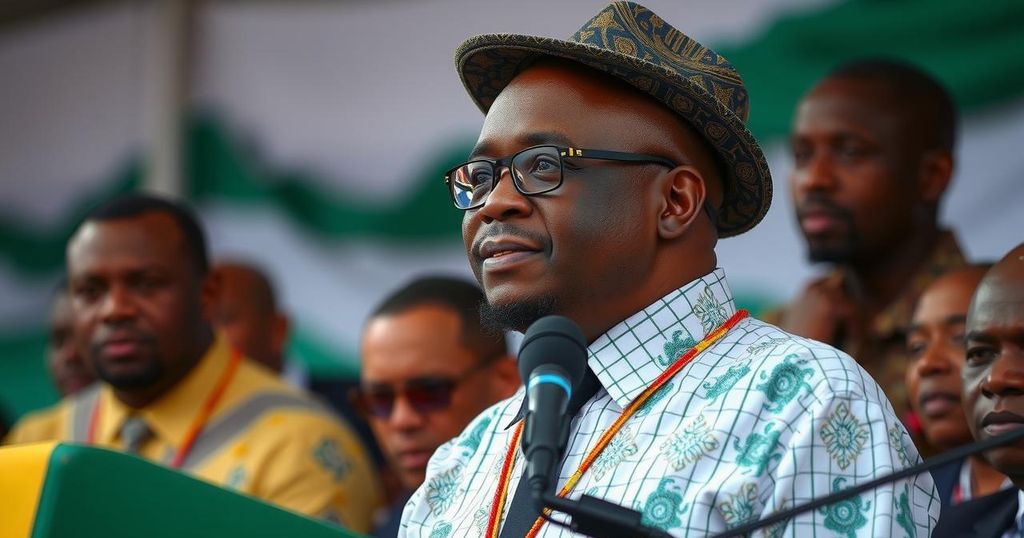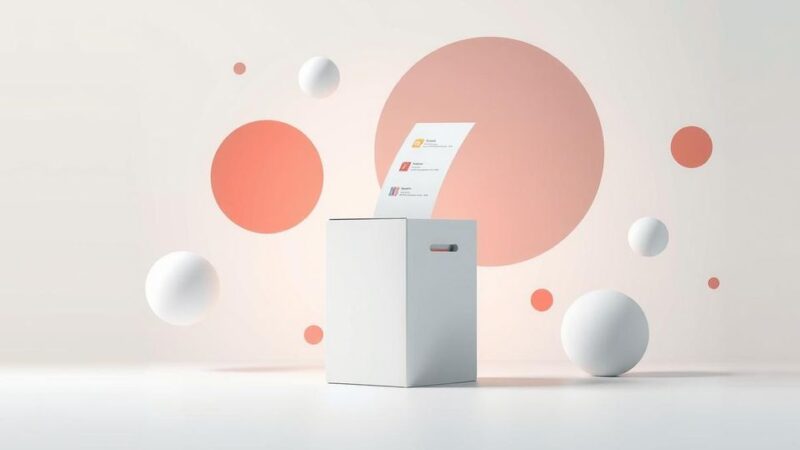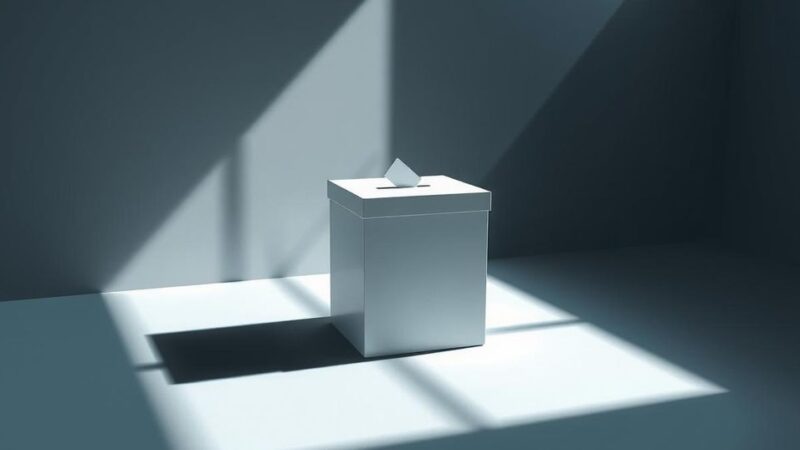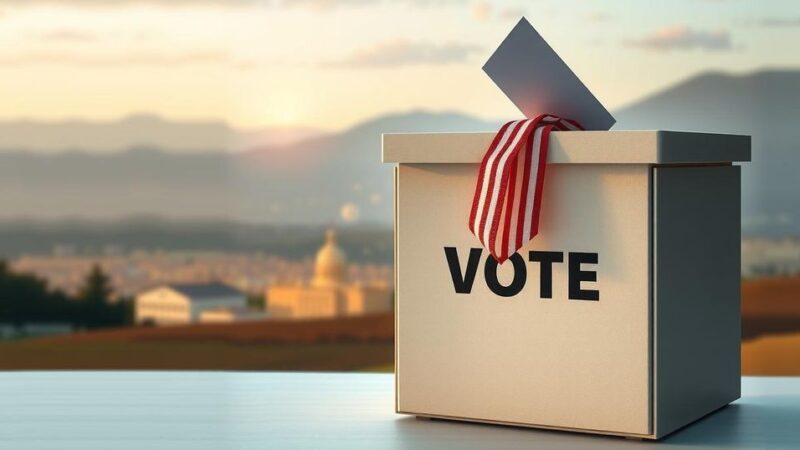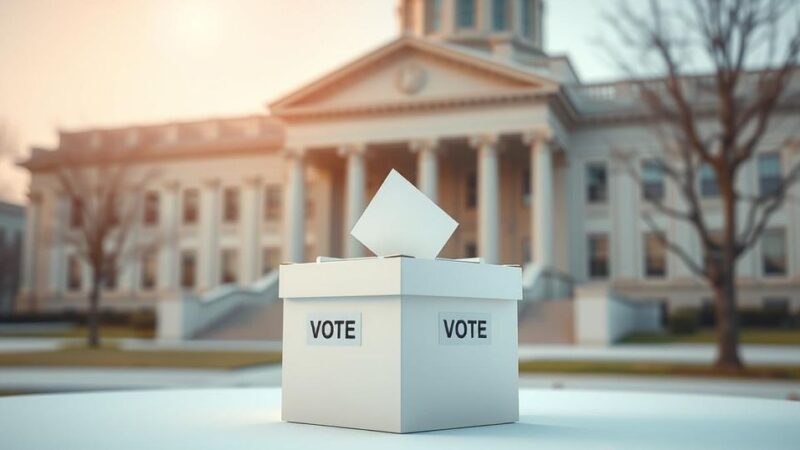The Ghanaian presidential election on December 7 features John Mahama challenging Vice President Mahamudu Bawumia. Mahama aims to create a 24-hour economy to boost job creation, while Bawumia addresses economic recovery post-COVID-19. Voter sentiment shows discontent with traditional parties, despite historical dominance, indicating a potentially competitive election. Key issues include economic challenges, illegal mining, and infrastructural development, with growing support for alternative candidates like Nana Bediako.
The forthcoming presidential election in Ghana, scheduled for December 7, is set to be intensely competitive. The former President John Mahama will challenge current Vice President Mahamudu Bawumia, the candidate representing the ruling New Patriotic Party. Mahama promises to foster a 24-hour economic environment aimed at job creation and economic recovery, following Ghana’s significant external debt default of $30 billion in 2022. Meanwhile, Bawumia acknowledges the economic challenges that arose post-COVID-19 yet maintains his commitment to economic enhancement.
Since the onset of multiparty democracy in 1992, Ghana has predominantly alternated governance between either the National Democratic Congress (NDC) or the New Patriotic Party (NPP). Kwame Asah Asante, a senior lecturer at the University of Ghana, asserts, “It’s the dominant parties; one of them is going to carry the day.” This trend appears unlikely to change, as minor parties have historically failed to surpass 5% of the electoral vote, although there are indications that they could potentially influence a runoff.
The political atmosphere in Accra reflects an engaged electorate, with numerous candidate billboards throughout the city. Some voters express their fatigue with the longstanding dominance of the two major parties, yearning for alternatives. Angela Ofori, an undecided voter, notes, “Since 1992 to this year, we haven’t changed parties … we want [to] change to [a] different party so that we would see more improvements.”
Notably, the independent candidate Nana Kwame Bediako, also known as Cheddar, is drawing interest from the younger demographic, albeit lacking the establishment to affect election results significantly. Bediako’s platform emphasizes both economic enhancement and environmentally responsible policies.
The election’s backdrop includes pressing economic concerns triggered by Ghana’s economic difficulties, primarily its $30 billion external debt default, exacerbated by the global COVID-19 pandemic and disruptions from the Ukrainian war. Asante pointed out that key issues such as infrastructure, health, and education are pivotal, with the economy being a primary focus. Voter sentiments resonate with the notion that “the economy will play an important role because it’s a bread-and-butter issue.”
Additionally, the ramifications of illegal mining, termed “galamsay,” pose significant threats to Ghana’s environmental and agricultural sectors, impacting cocoa production and prompting voter disillusionment with the current administration. Wisdom Gavor expresses a widespread desire for transformation, stating, “The suffering is too much for us … we want a change in the system.”
Conversely, supporters of Vice President Bawumia commend his contributions to economic digitization, emphasizing his efforts to modernize operations and create jobs through technological advancements. Ivan Duke, an NPP voter, remarks, “One policy I am very happy about is the digitization policy … making everything more accessible.”
Overall, while Ghana possesses a reputation as a stable democracy amidst a tumultuous regional landscape, the forthcoming election is anticipated to be closely contested, reflecting both the populace’s aspirations for change and the incumbent government’s strategic responses.
Ghana has a long-standing democratic tradition since the inception of multiparty politics in 1992, predominantly governed by two major political parties—the National Democratic Congress (NDC) and the New Patriotic Party (NPP). The country faces significant challenges, including a substantial external debt and economic issues exacerbated by global events, particularly the COVID-19 pandemic and conflicts impacting food supplies. These factors have shaped the political discourse as candidates prepare for the upcoming elections.
In summary, the upcoming Ghanaian elections are characterized by a competitive landscape, underpinned by economic revitalization promises from both major party candidates and growing public dissatisfaction with longstanding governance patterns. The electorate is not only focused on immediate national challenges but also open to the prospect of alternative candidates who may bring about significant changes in policy and governance. This election will likely determine Ghana’s economic trajectory and overall political stability amid pressing domestic and international challenges.
Original Source: www.voanews.com
